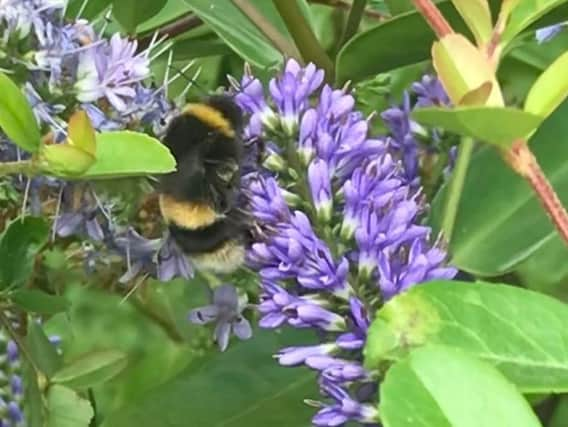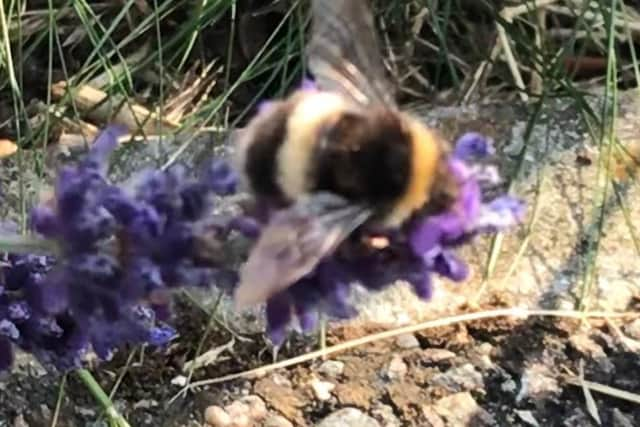What's the buzz? Here's to help bees this summer


The Lincolnshire Bee Keepers Association (LBKA) is a registered charity aiming to encourage and improve apiculture across the county and increase public awareness of the importance of bees for the environment.
According to Friends of the Earth, since 1900, the UK has lost 13 species of bee, and a further 35 are considered under threat of extinction. None are protected by law, and the main causes of the decline in the bee population is due to and use, habitat loss, disease, pesticides, farming practices, pollution, invasive non-native plant and animal species, and climate change.
Advertisement
Hide AdAdvertisement
Hide AdThe LBKA has said that if people are wishing to help bees and other pollinators, the best way is to plant pollen and nectar rich flowers in their gardens.


Examples of bee-friendly flowers, according to the Woodland Trust, include honeysuckle, clovers, wood anenome, comfry and bluebells.
The LBKA also recommends that grass verges are not cut until later in the season, hedgerows are maintained and wildflowers are planted. People's help with raising the profile of this to local councils and landowners would be a big help.
However, the LBKA does not recommend that people purchase a beehive for their garden.
Advertisement
Hide AdAdvertisement
Hide AdA spokesman explained: "While it may look pretty, once bees are in a hive they are classed as livestock and require regular inspection and treatment to be kept healthy.
"Unfortunately each year there are outbreaks of disease that result in bees having to be destroyed, so while people maybe acting with the best of intention it can in fact have a quite devastating effect.
"If someone does get a hive for home, they should register it with the Animal and Plant Health Agency at the their website."
Anyone interested in becoming a beekeeper is welcome to attend a meeting at one of the local LBKA districts and find out more about what is involved.
The LBKA has branches in Boston, Grimsby, Lincoln, Louth, Market Rasen, Sleaford, Horncastle and Broughton, near Scunthorpe.
You can find your local branch here.